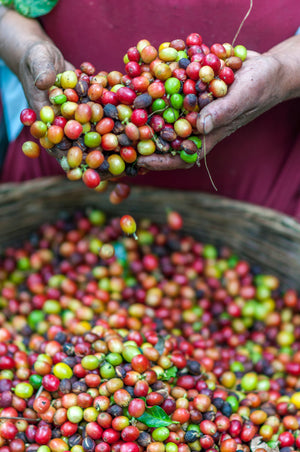Bringing Organic Coffee into Australia
The journey of organic coffee into Australia is a carefully managed and well-oiled machine with stringent regulations set by the Australian Government Department of Agriculture, Fisheries and Forestry. As the gatekeeper of biosecurity and quality, this regulatory body ensures that every imported organic product meets the specified standards before gracing the Australian shores.
Before a single coffee bean finds its way into an Australian cup, it must pass a series of thorough checks. The Department of Agriculture, Fisheries and Forestry outlines these conditions:
1. The goods must be free from any trace of fruit pulp, contaminant seed, soil, animal and plant debris, or any other biosecurity risk material.
2. Each consignment must be housed in clean and new packaging, emphasising the importance of maintaining the product's integrity from source to destination.
3. If there is evidence of the coffee bean borer* (Hypthenemus hampei), i.e. holes and frass, is found, then a small subset of the beans will be dissected to check for the presence of larvae. If larvae are detected, the beans will be treated with methyl bromide (40g/m³ for 3 hours at 21°C and above) or in the case of organic coffees will be put into cold storage at -18°C for 7 days.
🚢 There's also the option of resealing the container and sending it back.
❄️ Cold Storage Conundrum: A study conducted in Hawaii by the Journal of Economic Entomology investigated the impact of cold storage on green coffee. The findings suggest that a quarantine treatment of −20°C for 5 days or longer can control the coffee berry borer without compromising seed viability. However, it's crucial to note that this method may not be effective against other pests like coffee leaf rust, which methyl bromide fumigation can control.
Amidst these procedures, the Department ensures that the flavour of the green coffee remains unaffected, proving that safeguarding against pests doesn't have to sacrifice the flavour of the brew.
👩🏫 Inspections and Audits: Importers of organic products must present certification documentation from accredited organic certifying bodies, affirming that the coffee aligns with recognised organic standards. The Department may also conduct on-site inspections, audits, and random sample testing to verify the authenticity of organic certification.
🔬 Traceability is Key: Importers must provide traceability records, mapping the organic product's journey from production to import. This stringent traceability ensures the product's organic integrity throughout the supply chain.
🚢 Importer Compliance: Importers play a crucial role in this process. They are expected to adhere to regulations and standards. Non-compliance carries the weight of penalties, recalls, or other regulatory actions.
Only when these rigorous checks and balances are satisfied can the coffee beans find their way into the Australian market—a testament to the nation's commitment to biosecurity conditions while protecting the quality and sustainability of a great cup of coffee. ☕🌿
*The coffee borer beetle or coffee berry borer is a small beetle native to Africa. It is among the most harmful pests to coffee crops across the world where coffee is cultivated

